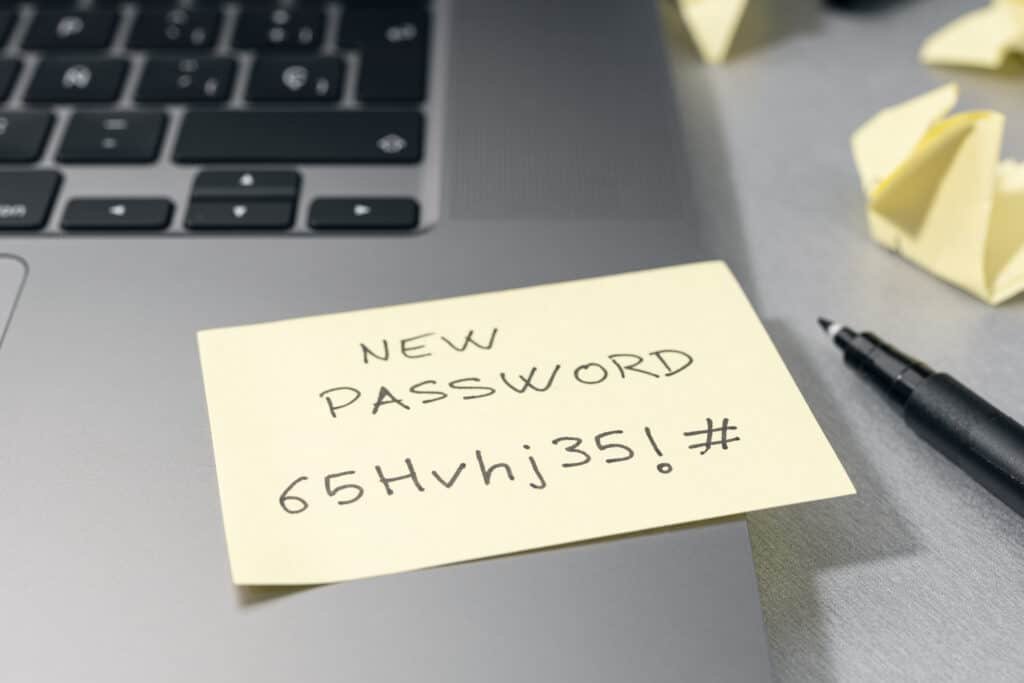Find the Best Password Manager of 2024: A Comprehensive Comparison

We may earn a small fee from the companies mentioned in this post.
In today’s digital age, securing personal information and online accounts has never been more important. As the number of data breaches and hacking incidents continues to rise, it’s crucial to take control of your online security. One of the most effective ways to do this is by using a password manager.
But with so many options available, how can you choose the best password manager to meet your needs? In this blog post, we’ll explore the top five best password managers of 2023, comparing features, security standards, and more. By the end of this journey, you’ll have a clearer understanding of which password manager will provide you with the strongest protection and most convenient experience.
So buckle up, and let’s dive into the world of the best password managers, and find the very best password managers and solution to keep your digital life secure and stress-free!
Short Summary
Comprehensive comparison of top password managers of 2023, based on user reviews.
Consider security, privacy, compatibility & cost when selecting a reliable password manager.
Alternatives to traditional passwords such as biometric authentication and two-factor authentication are becoming increasingly popular for improved security and convenience.
Top Password Managers of 2023

As we venture into the summer of 2023, numerous password managers have emerged as frontrunners in the industry. Based on user reviews, NordPass, 1Password, Bitwarden, Keeper, LastPass, and Enpass have been deemed the best password managers of 2023. These top contenders prioritise security, utilising layered encryption with two levels of recovery and seamless integration with other products.
The ‘master password’ is the cornerstone of any good password manager, serving as the sole password that grants access to all the other passwords stored within the password manager account. It is therefor crucial to ensure your master password is difficult to guess and that two-factor authentication is enabled on your account.
But how do you choose the right password manager? Let’s explore the criteria for selecting the very best password manager’s servers and name option for you.
Choosing the Right Password Manager
When it comes to selecting a good password manager for, several factors must be considered, such as security, privacy, storage, compatibility, synchronization, and cost.
However, not all password managers are created equal. In December 2022, LastPass was the victim of a data breach. Encrypted password vaults and personal details such as names, email addresses, IP addresses, phone numbers, and some billing information were exposed.
As a result, Lass Pass users should change all their existing passwords and consider transitioning to an alternative password manager.
When choosing a password manager it is also essential to evaluate customer support options. Passwarden, for example, offers 24/7 live chat support, email support, and a comprehensive knowledge base for assistance.
By taking all these factors into account, you can find the best password manager that suits your specific needs and preferences.
Security and Encryption Standards
A vital aspect of any secure password manager’s servers is its security and encryption standards. Leading password managers employ AES-256 encryption, zero-knowledge architecture, and biometric logins.
AES-256 encryption is a military-grade cipher utilised to secure sensitive data. Meanwhile, zero-knowledge architecture ensures that only the user has access to the passwords contained in the encrypted vault and file storage within the encrypted vault.
Biometric login, a feature supported by Dashlane, provides an additional layer of security by using technologies like fingerprint scanners and facial recognition cameras to identify the user. By employing these robust security measures, password managers can help protect your sensitive information and reduce the risk of unauthorised access.
When comparing the best password managers around, it’s crucial to prioritise those that implement the highest security and encryption standards, ensuring that all your passwords and personal information remain safe and secure.
Mastering the Master Password

Your single master password is the key that unlocks your entire password vault, safeguarding all other passwords stored within. It’s essential to create a strong master password that is both memorable and unpredictable. Consider using a password generator as this can provide an excellent master password. You can also read our review on creating a good password which should help.
Let’s delve into the world of master passwords, exploring how to create a secure password, along with the available recovery options.
Password Strength and Unpredictability
The security of your online accounts depends on the strength and unpredictability of your passwords. A secure password should be at least 20 characters long. Reusing weak passwords across multiple accounts increases the likelihood of them being compromised, so it’s important to create unique passwords for each account.
To create a strong master password, use a combination of letters, numbers, and symbols while avoiding personal information. This will make it harder for hackers to guess your password and gain unauthorised access to your accounts. Password managers can also help you generate strong passwords, ensuring that each of your accounts is protected by a unique and secure password.
Although it may be tempting to use an easy-to-remember, weak password sometimes, doing so puts your accounts and sensitive data at risk. By creating a strong, unpredictable master password and using a password manager to generate unique passwords for each account, you can significantly reduce the risk of unauthorised access to your sensitive information.
Recovery Options
In the event that you forget your master password, the available recovery options may vary depending on the password manager you’re using. Some other password managers also, like 1Password and Bitwarden, offer biometric login options, including Face ID and Touch ID on iOS & macOS, and most Android & Windows fingerprint readers. Other password managers provide recovery options that involve using a backup password data, email address or security questions.
We recommend writing down your single master open source password and and storing it in a secure location, separate from your devices. Additionally, enabling two-factor authentication on your password manager account can provide an extra layer of security.
By implementing these recovery options and taking the necessary precautions to protect your master password, you can ensure that you’re always able to access your password vault and keep unlimited passwords for all your accounts secure.
Browser vs. Standalone Password Managers

With a wide variety of free password managers available, it’s essential to understand the differences between browser-based and standalone password managers. Browser password managers are integrated into the browser and typically offer a free version of password manager services, while standalone password managers are independent applications that provide additional features and typically require a fee.
Both types of password managers have their pros and cons, but which one is right for you? Let’s dive deeper into the differences between browser-based and standalone password managers, focusing on syncing across devices and additional features.
Syncing Across Devices
One of the main advantages of browser-based password managers is their ability to sync saved passwords across devices, allowing you to access your saved passwords from multiple devices and use biometric logins. For example, Google Password Manager, the official password generator option for Android, stores passwords used on Android apps and website passwords.
On the other hand, standalone password managers like 1Password and Bitwarden offer a more secure dedicated environment, they also have the ability to sync passwords across multiple devices and browsers. By using a dedicated password manager, that provides cloud synchronisation, secure storage, and access on an unlimited number of devices, or browser extensions, you can ensure that your passwords are always available when you need them, no matter which device you’re using.
When choosing a password manager, consider your specific needs and preferences in terms of syncing across devices and web browsers. By selecting a solution that offers the right combination of convenience and security, you can enhance your online experience while keeping all your accounts protected.
Additional Features

Standalone password managers often provide additional features that may not be available in browser-based password managers. For example, form-filling, password management tools, data breach alerts, and password generators are some of the features offered by standalone password managers.
These additional features can significantly enhance your online experience, making it easier to manage your passwords and stay informed about potential security threats. Furthermore, many password managers offer more advanced features than those available through native autofill functions, giving you greater control over your own password management tool.
When comparing browser-based and standalone password managers, it’s important to consider the additional features that each option provides. By selecting a password manager that offers all the features you need, you can ensure that your online experience is both secure and convenient.
Two-Factor Authentication and Security Keys

In today’s online landscape, relying solely on a strong password may not be enough to keep your accounts secure. Two-factor authentication and security keys provide an extra layer of protection, ensuring that even if someone obtains your master password, they won’t be able to access your account without the additional authentication that multi factor authentication does.
But how do you set up two-factor or multi factor authentication, and use security keys for extra protection? Let’s explore the process of setting up two-factor or multi factor authentication, and the benefits of using multi factor authentication and using security keys.
Setting Up Two-Factor Authentication
Two-factor authentication can be enabled in most password managers, providing an additional layer of security for your account. For example, 1Password and Bitwarden Premium both offer support for security keys as a secondary authentication factor for login. Authy is one app recommended for two-factor authentication. By using an app like Authy, you can ensure that you have a secure method for receiving authentication codes, even if you lose access to password data on your mobile device or it’s compromised.
To enable two-factor authentication in your password manager, simply follow the instructions provided by the specific password manager you are using. Once enabled, you’ll need to provide both your master password and the additional authentication factor (such as a code generated by an app like Authy) in order to access your account. This added layer of security helps to protect your sensitive information and keep your accounts secure.
Using Security Keys
Security keys, such as YubiKeys, are physical devices that can be used to authenticate your identity, providing an additional layer of security when accessing your accounts. By using a security key in combination with your master password, you can ensure that even if someone gains access to your password, they won’t be able to access your account without the physical security key.
To use a security key with your password manager, simply follow the setup instructions provided by the specific password manager you are using. Some password managers, like 1Password and Bitwarden, support security keys as a secondary authentication factor for login.
By incorporating security keys into your password management strategy, you can further strengthen the security of existing passwords for your accounts and protect your sensitive information from unauthorized access.
Mobile Compatibility and App Integration

As we increasingly rely on mobile apps and devices for our daily digital activities, it’s important to ensure that your password manager is compatible with your mobile devices and can integrate with the apps you use. Most password managers offer mobile apps that automatically fill in usernames and passwords on websites and in applications, making it easy to access your accounts from your smartphone or tablet.
Let’s explore the mobile apps and desktop app, apps for compatibility and desktop app for integration in more detail, focusing on autofill features and setup directions for desktop apps and mobile apps on iOS and Android devices.
iOS and Android Support
When choosing a password manager, it’s important to ensure that it’s compatible with both iOS and Android devices, has an intuitive user interface, and offers features specific to each platform. 1Password and Bitwarden, for example, both offer compatibility with iOS and Android, providing a seamless user experience across multiple devices.
In addition to compatibility, it’s crucial to consider the security measures implemented for iOS and Android support, such as multi-factor authentication and secure encryption. By selecting a dedicated password manager, that offers a user-friendly interface and features specific to each platform, you can ensure that your password management experience is both secure and convenient, regardless of the device you or desktop app you’re using.
To get started with a password manager on your iOS or Android device, simply download the app from the respective app store and follow the setup instructions provided by the specific password manager you’ve chosen.
Autofill Features
Autofill features enable users to quickly and easily complete forms on websites and apps, saving time and reducing the risk of entering incorrect information. Most password managers offer autofill capabilities, allowing you to seamlessly enter your usernames and passwords without having to type them manually.
Some password managers, like 1Password and Bitwarden, offer more advanced autofill features than those available through built-in autofill options, giving you greater control over your own password management tool. These features can significantly enhance your online experience, making it easier to manage your passwords and stay informed about potential security threats.
By choosing a free password manager, that offers advanced autofill features, you can ensure that your online experience is both secure and convenient.
Password Sharing and Family Plans

Sharing passwords securely with family members can be a challenge, especially when it comes to managing multiple accounts and devices. Password managers can simplify this process by providing the most often secure passwords and password managers with sharing options and family plans, allowing you to share secure passwords with family members while maintaining control over your sensitive information.
Let’s explore the most secure password manager providers and how the most secure password managers work together for sharing options and family plans offered by popular most secure password managers here, such as 1Password and Bitwarden.
Checkout our Blog on Creating a Good Password
Secure Sharing Options
1Password and Bitwarden both offer secure password sharing options, allowing you to share passwords with family members without exposing sensitive information. 1Password, for example, offers a family plan that provides the ability to share unlimited password storage multiple vaults, enabling you to share certain logins (e.g. for paying bills or managing finances) while keeping others private (e.g. for personal email or work-related sites).
Bitwarden offers similar features at a lower cost, though with a less user-friendly interface. To create and share password vaults in Bitwarden, you need to establish an organization, with a two-person organisation being free and larger organisations costing £2 per month per person.
By using a password manager with secure sharing options, you can share passwords with family members in a safe and controlled manner, ensuring that your sensitive information remains protected.
Family Plan Comparisons
When comparing family plans, it’s important to consider the features and pricing options offered by each password manager. For example, 1Password Families provides multiple user accounts and secure sharing capabilities, making it an attractive option for families looking to manage their passwords together.
On the other hand, the Bitwarden Family plan offers a more affordable solution, with multiple user accounts and secure sharing options available at a lower price point. However, 1Password Families offers a greater variety of features and provides more value for money than the Bitwarden Family plan.
By comparing the features and pricing options of each password manager deals your family plan, you can determine which password manager best meets the needs of your family, ensuring that everyone can manage their passwords securely and efficiently.
Data Breach Monitoring and Alerts

Data breach monitoring and alerts play a crucial role in protecting your online accounts from unauthorized access. By staying vigilant and responding promptly to any alerts generated by your password manager, you can minimize the risk of your accounts being compromised.
Let’s explore how data breach monitoring works and the steps you can take to respond to alerts and safeguard your accounts.
How Monitoring Works
Data breach monitoring involves detecting, investigating, risk-assessing, and reporting data breaches. It requires preparing for a breach, detecting the breach, taking urgent incident response actions, gathering evidence, closely monitoring all entry and exit points, and having effective processes in place for detecting, investigating, risk-assessing, and reporting breaches.
LastPass, for example, is no longer eligible for data breach monitoring due to a prior security breach. However, most other password managers now, including NordPass, offer a Data Breach Scanner that scans the internet for any potential data breaches that may have impacted your accounts.
By implementing data breach monitoring and having a well-established incident response plan, you can stay informed about potential threats and take the necessary steps to protect your accounts and sensitive information.
Responding to Alerts
When you receive a data breach alert from your password manager, it’s crucial to take immediate action to secure your accounts. This may involve changing your passwords, enabling two-factor authentication, or even contacting the affected company to inquire about additional security measures they may have in place.
Some password managers, like Bitwarden, offer premium features that can help you detect weak passwords and unsecured websites, further enhancing your online security. By staying informed about potential security threats and responding promptly to alerts, you can minimise the risk of your accounts being compromised.
In addition to changing passwords and enabling two-factor authentication, it’s essential to stay vigilant and educate yourself about the latest security threats. By doing so, you can ensure that your online accounts remain protected and secure at all times.
Alternatives to Traditional Passwords

While traditional passwords have long been the standard for securing online accounts, there are a growing number of alternatives that offer increased security and convenience. Biometric authentication and two-factor authentication are widely used alternatives to traditional passwords, while other options include physical keys, one-time passwords, and password managers.
Passkeys, for example, is a company currently entering the password manager market, offering a unique alternative to traditional passwords. By exploring these alternative options, you can find the very best password, and only the best password managers, manager solution for your specific needs and preferences, ensuring that your online accounts remain secure and protected.
As technology continues to evolve, we can expect to see even more innovative solutions for securing our online accounts. By staying informed about these developments and embracing new security measures, we can stay one step ahead of potential threats and enjoy a safer online experience.
Summary
Throughout this blog post, we’ve explored the top password managers of 2023, their security features, and the importance of a strong master in dedicated to password managers in 2023. We’ve also discussed the differences between browser-based and standalone password managers, the benefits of two-factor authentication and security keys, password management software and the various options for mobile compatibility and app integration dedicated to the best password- and password managers in 2023 here.
By carefully considering all the features and pricing options of each password manager, you can choose the very best password managers solution for your specific needs and preferences. Whether you’re looking for a comprehensive family plan or a secure sharing option, there’s a password manager out there that can meet your requirements and keep your online accounts safe and secure.
In a world where online threats are continually evolving, it’s more important than ever to take control of your online security. By using a password manager and staying informed about the latest security measures, you can protect your sensitive information and enjoy a safer, more convenient online experience.
Frequently Asked Questions
Which password managers are the most secure?
When considering which password managers are the most secure, Dashlane, LastPass, 1Password and Bitwarden stand out for their extra security features and encrypted vaults.
These four top password management tools and services all offer additional protection for both reused passwords and compromised passwords,, online data store, reused passwords, and compromised passwords, making them ideal choices for users looking for robust security measures.
What is the best personal password manager UK?
The best personal password manager in the UK for 2021 is NordPass. It provides users with unlimited password, encrypted file storage and a range of other features to keep their online accounts secure. The intuitive interface makes it easy to use, while its cutting-edge encryption ensures that user data stays private.
NordPass is an a password manager remains an excellent choice for anyone looking for unlimited password storage and a comprehensive a password management software solution.
Are password managers worth the money?
Password managers are worth the money as they provide a safe and easy way to store all your passwords together, preventing hackers from easily accessing your accounts.
Additionally, many password managers have features that can detect if your login information has been compromised, further improving your security. Thus, using a good password manager, is an essential step for keeping your digital life secure.
Password managers are a great way to generate strong passwords to protect your accounts and data, and they are becoming increasingly popular. With the rise of cybercrime, it is more important than ever to ensure that your passwords are secure. Password managers provide an easy and secure way of managing passwords.
External References
- LastPass
- Link: https://www.lastpass.com/
- Details: LastPass is a popular password manager that offers a variety of features such as password generation, form filling, and secure notes. It also supports multi-factor authentication.
- Dashlane
- Link: https://www.dashlane.com/
- Details: Dashlane provides a simple and secure way to manage your passwords and keep your data safe. It also includes a digital wallet for online purchases.
- 1Password
- Link: https://1password.com/
- Details: 1Password is a password manager that emphasizes privacy and security. It offers features like a digital wallet, secure notes, and password generation.
- Bitwarden
- Link: https://bitwarden.com/
- Details: Bitwarden is an open-source password manager that provides end-to-end encryption for your passwords and data.
- Keeper
- Link: https://www.keepersecurity.com/
- Details: Keeper is a top-rated password manager that offers a variety of features including secure file storage, password sharing, and dark web monitoring.
With over three decades of experience in the heart of London’s financial sector, I have dedicated my career to the pursuit of robust cybersecurity practices and IT leadership. As a Certified Information Systems Security Professional (CISSP), Certified Information Security Manager (CISM), Certified Chief Information Security Officer (C|CISO), Certified Ethical Hacker (CEH), and Computer Hacking Forensic Investigator (CHFI), I bring a wealth of knowledge and expertise to the table.
My journey in the field of cybersecurity has not only been about personal growth but also about sharing my insights with others. As an international speaker, I have had the privilege of addressing audiences worldwide, discussing the importance of cybersecurity in today’s digital age. My passion for knowledge sharing extends to my work as an author and blogger, where I delve into the complexities of cybersecurity, offering practical advice and thought leadership.
In my role as a CISO and Head of IT, I have overseen the development and implementation of comprehensive information security and IT strategies. My focus has always been on creating resilient systems capable of withstanding the evolving landscape of cyber threats.
My Master’s degree in Cybersecurity has provided a solid academic foundation, which, when combined with my practical experience, allows me to approach cybersecurity from a holistic perspective.
I am always open to connecting with other professionals in the field, sharing knowledge, and exploring new opportunities. Let’s secure the digital world together.

